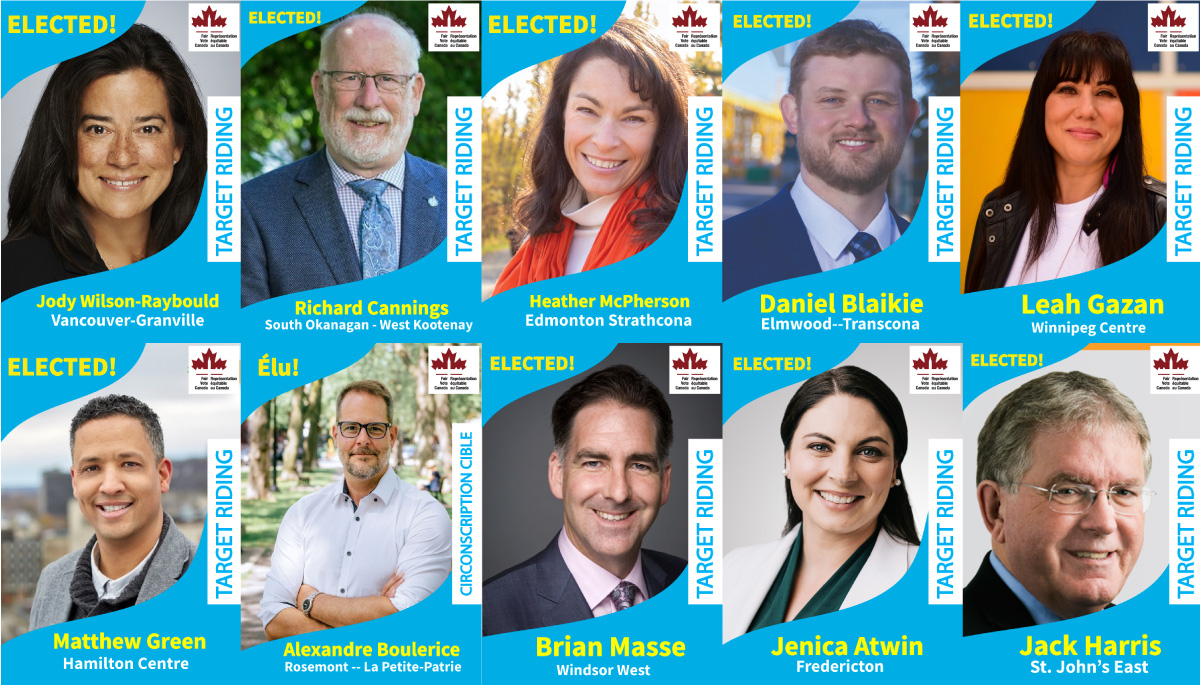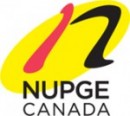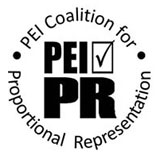Election 2019: You Can Help Elect MPs Who Will Fight for Proportional Representation!
No party with 39% of the vote should get 100% of the power. The Trudeau Liberals promised to end first-past-the-post, and make every vote count. In February 2017, the Liberals announced they were breaking their promise. Trudeau stated, “It was my choice to make.” He stated that if you don’t agree with his decision, “That is what elections are for.” We CAN get electoral reform back on the table. In the event of a minority government situation, we would like to see parties make action on electoral reform a condition of their support.
Watch “Crowded” – our video ad on Trudeau’s Broken Promise
Find out which parties and candidates we’re endorsing in this election.
Learn about our target ridings this election – and how you can help.
Read the results of the Angus Reid national poll on electoral reform.
Learn more about our call for a National Citizens’ Assembly on Electoral Reform.
Find out why a Green New Deal needs proportional representation and watch our video ad about why climate action needs PR
Parties and Candidates Endorsed by Fair Vote Canada

Fair Vote Canada endorses candidates running for the NDP, based on the NDP’s platform, their longstanding support, and their record fighting for proportional representation in the last Parliament. NDP Platform:

Fair Vote Canada endorses candidates running for the Green Party, based on the Green Party’s platform, their longstanding support, and their record fighting for proportional representation in the last Parliament. Green Party Platform: “Ensure that the 2019 election is the last “first past the post” election. By March 2020, we will launch a Citizens Assembly on Electoral Reform with the mandate to make recommendations to parliament on an electoral system that would “make every vote count.” Legislative changes to implement the recommendations of the Citizens Assembly would be made in time for the 2023 federal election.” Read the full commitment on the Green Party website Watch the video Elizabeth May addressing Fair Vote Canada’s Annual General Meeting, June 8, 2019:
Other Candidates Endorsed by Fair Vote Canada
Fair Vote Canada also endorses the following individuals from other parties, or independents, who have supported proportional over the last four years by speaking up for it publicly or taking some action. By far the strongest public advocate in the Liberal Party has been Nathaniel Erskine-Smith, MP for Beaches-East York.
Nathaniel Erskine-Smith, Liberal MP, Beaches - East York
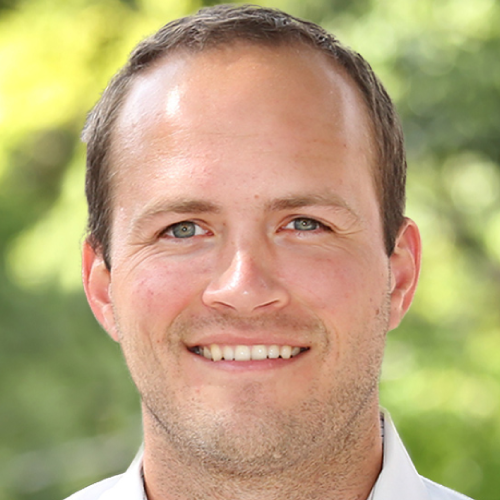 Nathaniel Erskine-Smith has been a long time outspoken advocate of proportional representation. Prior to being elected as MP, he was a Fair Vote Canada member and volunteer, which he referred to during his first speech in the House of Commons. When Trudeau broke his electoral reform promise, Nathaniel was the only Liberal MP to apologize to all Canadians in the media. An excerpt: “I’m deeply sorry my party broke its promise on electoral reform.” “Since the election, I have spoken publicly in support of electoral reform and greater proportionality, in the House and in interviews. To all Canadians who support the promise of reform, and especially to those who supported me and believed in my promise of change throughout both the nomination and general election in Beaches-East York, I am deeply sorry. True to my word, I will continue to be an advocate for electoral reform for as long as I am in Ottawa.” In May, 2017, after Trudeau broke his promise, the NDP introduced a motion to accept the report of the Electoral Reform Committee. Although acceptance of the report would not have forced the government to take action, it would have symbolized a willingness on the part of Liberal MPs to continue working on electoral reform. Nathaniel was only one of two Liberal MPs who joined with the opposition parties to vote yes. In June 2019, he made this video for members at Fair Vote Canada’s Annual General Meeting:
Nathaniel Erskine-Smith has been a long time outspoken advocate of proportional representation. Prior to being elected as MP, he was a Fair Vote Canada member and volunteer, which he referred to during his first speech in the House of Commons. When Trudeau broke his electoral reform promise, Nathaniel was the only Liberal MP to apologize to all Canadians in the media. An excerpt: “I’m deeply sorry my party broke its promise on electoral reform.” “Since the election, I have spoken publicly in support of electoral reform and greater proportionality, in the House and in interviews. To all Canadians who support the promise of reform, and especially to those who supported me and believed in my promise of change throughout both the nomination and general election in Beaches-East York, I am deeply sorry. True to my word, I will continue to be an advocate for electoral reform for as long as I am in Ottawa.” In May, 2017, after Trudeau broke his promise, the NDP introduced a motion to accept the report of the Electoral Reform Committee. Although acceptance of the report would not have forced the government to take action, it would have symbolized a willingness on the part of Liberal MPs to continue working on electoral reform. Nathaniel was only one of two Liberal MPs who joined with the opposition parties to vote yes. In June 2019, he made this video for members at Fair Vote Canada’s Annual General Meeting:
Jody Wilson-Raybould, Independent, Vancouver-Granville
 During the 2015 election, Fair Vote Canada approached every candidate with a questionnaire, assessing their level of support for proportional representation. With few notable exceptions, most Liberal candidates did not respond to us, or declined to answer any of the questions, sending only a party-issued form letter in the place of anything that would hint at a personal position or commitment.
During the 2015 election, Fair Vote Canada approached every candidate with a questionnaire, assessing their level of support for proportional representation. With few notable exceptions, most Liberal candidates did not respond to us, or declined to answer any of the questions, sending only a party-issued form letter in the place of anything that would hint at a personal position or commitment.
Wilson-Raybould was one of the welcome exceptions. She answered YES to this question:
Do you agree that, if your party forms government or supports a minority government, you will advocate for public consultations to amend elections laws, and following this consultation, you will support reforms to add a suitable element of proportional representation to the election of representatives to our legislative assemblies? yes/no
She gave Fair Vote Canada a personal quote to publish: “I think the House of Commons should reflect the diversity within this country.” She retweeted our poster promoting the candidate positions. And her 2015 campaign website stated:
We need to consider advancing our maturing democracy through embracing appropriate measures of electoral reform, including proportional representation and mandatory voting. Democratic reform and renewal of our institutions may not be sexy but it is incredibly important.
In May, 2017, Wilson-Raybould stood with the Liberal Party in voting no to accepting the report of the Electoral Reform Committee (159 Liberals voted no, 2 voted yes). This vote was a last ditch effort by the NDP to get a discussion of electoral reform back on the table — after Justin Trudeau had slammed the door — by asking Parliament to endorse the ERRE report. However, as a cabinet Minister, Wilson Raybould especially would have been expected to show cabinet solidarity.
In her letter to Liberal MPs just before she found out she had been removed from the caucus, Wilson-Raybould reminded her colleagues of the promise of “real change” they campaigned on, “a transformation in our political culture” — including proportional representation.
The day she announced she was running as an independent, she stated:
“I heard that we need to do politics differently. That partisanship is trumping principle. That exclusion is trumping inclusion, and that the lack of diversity of voices was simply unacceptable and there is too much power in the centre.”
“When the challenges we have to meet are collective ones, we need to respond through shared and joint efforts that use the distinct talents, ideas and expertise we all have to offer. And in this reality there is less room for overt partisanship in our evolving democracy.”
“A lot of people in our riding were very disappointed about not going forward with democratic reform.”
On September 25, 2019, her campaign released a campaign video in which she said:
“We need smart, responsive electoral reform now, not later.“
The same day, her campaign released her electoral reform policy. Wilson-Raybould restated her support for electoral reform and proportional representation. She called for a system “where each of our votes matter“. There is a slightly confusing reference in her policy to “ranked ballots“. Ranked ballots are mainly used in two different voting systems: the single-transferable-vote (a proportional system among those Fair Vote Canada supports) and the alternative vote (a winner-take-all system Fair Vote Canada opposes). There is also reference to a plebiscite in her policy. Fair Vote Canada opposes a plebiscite or referendum as a precondition for electoral reform. We are calling on all candidates to support a national citizens’ assembly on electoral reform.
Sabile Trimm, People's Party of Canada, candidate in Stormont-Dundas-South Glengarry
 Sabile Trimm has been an outspoken advocate of proportional representation and supporter of Fair Vote Canada. In 2017, she wrote this piece for the Review Newspaper – If Every Vote Counted. In 2018, Sabile promoted proportional representation as a provincial candidate for the Libertarian Party and produced two videos about PR on her website: https://sabiletrimm.wordpress.com/2018/10/18/proportional-representation-videos/ She also produced this video in which she discusses PR with Fair Vote Canada President Real Lavergne.
Sabile Trimm has been an outspoken advocate of proportional representation and supporter of Fair Vote Canada. In 2017, she wrote this piece for the Review Newspaper – If Every Vote Counted. In 2018, Sabile promoted proportional representation as a provincial candidate for the Libertarian Party and produced two videos about PR on her website: https://sabiletrimm.wordpress.com/2018/10/18/proportional-representation-videos/ She also produced this video in which she discusses PR with Fair Vote Canada President Real Lavergne.
Other Candidates of Note
(Note: Other Liberal MPs have supported PR in years before 2015. You can read more about the history of the Liberal Party and PR here).
Karen McCrimmon, Liberal MP, Kanata-Carleton
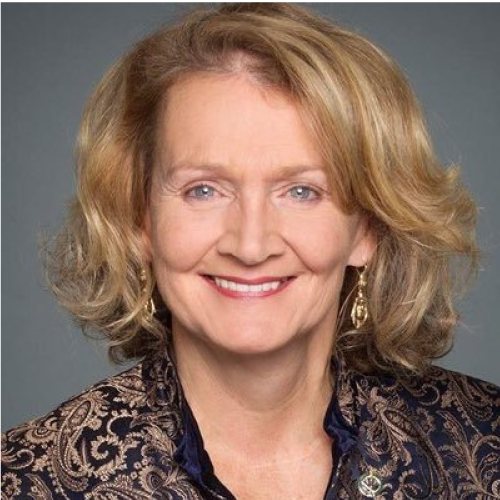 Other than her vote in 2017 on the motion to accept the report of the electoral reform committee, Karen McCrimmon has been a consistent supporter of proportional representation. She advocated proportional representation when she won the Liberal nomination in 2014: “We need fundamental change in our government. The government has to reflect the popular vote. A majority government doesn’t reflect the popular vote. An element of proportional representation is a positive thing.” She gave Fair Vote Canada a positive response to our pre-election questionnaire in 2015 and has continued to meet with Fair Vote Canada periodically, giving thoughtful input into the design of a proportional system.
Other than her vote in 2017 on the motion to accept the report of the electoral reform committee, Karen McCrimmon has been a consistent supporter of proportional representation. She advocated proportional representation when she won the Liberal nomination in 2014: “We need fundamental change in our government. The government has to reflect the popular vote. A majority government doesn’t reflect the popular vote. An element of proportional representation is a positive thing.” She gave Fair Vote Canada a positive response to our pre-election questionnaire in 2015 and has continued to meet with Fair Vote Canada periodically, giving thoughtful input into the design of a proportional system.
Anita Vandenbeld, Liberal MP, Ottawa West - Nepean
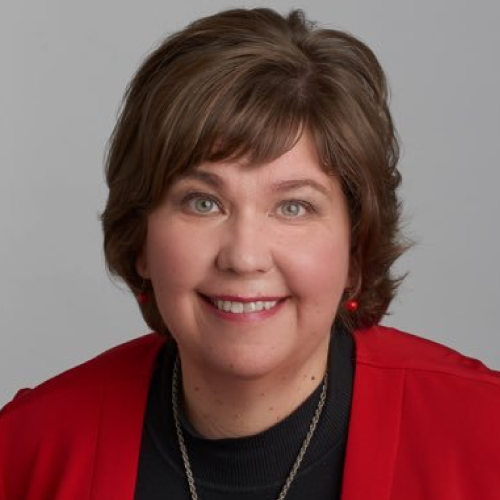 Anita Vandenbeld has been a consistent supporter of proportional representation, though she is not publicly vocal about it. In 2013, she backed Joyce Murray’s bid for the Liberal leadership. Murray was the only candidate advocating proportional representation. Like several other Liberal MPs, Vandenbeld signed Fair Vote Canada’s pledge to support and advocate for PR in 2015 and has continued to meet with Fair Vote Canada periodically. She warrants mention on this page because she did not vote on the NDP motion in 2017 to accept the report of the Electoral Reform Committee (159 Liberals voted no, 2 voted yes) and explained why. Her staff wrote: On behalf of Anita Vandenbeld I would like to thank you for your email regarding the vote in the House of Commons to concur in the third report of the Special Committee on Electoral Reform. Ms. Vandenbeld purposely abstained on this motion. She could not vote in favour of a report which included a referendum as a key recommendation. She also could not vote against it because she continues to be an advocate of electoral reform. Abstaining from the vote allowed her to remain true to both of those principles.
Anita Vandenbeld has been a consistent supporter of proportional representation, though she is not publicly vocal about it. In 2013, she backed Joyce Murray’s bid for the Liberal leadership. Murray was the only candidate advocating proportional representation. Like several other Liberal MPs, Vandenbeld signed Fair Vote Canada’s pledge to support and advocate for PR in 2015 and has continued to meet with Fair Vote Canada periodically. She warrants mention on this page because she did not vote on the NDP motion in 2017 to accept the report of the Electoral Reform Committee (159 Liberals voted no, 2 voted yes) and explained why. Her staff wrote: On behalf of Anita Vandenbeld I would like to thank you for your email regarding the vote in the House of Commons to concur in the third report of the Special Committee on Electoral Reform. Ms. Vandenbeld purposely abstained on this motion. She could not vote in favour of a report which included a referendum as a key recommendation. She also could not vote against it because she continues to be an advocate of electoral reform. Abstaining from the vote allowed her to remain true to both of those principles.
Sean Casey, Liberal MP, Charlottetown
 Sean Casey is not known to personally support proportional representation. However, he was one of only two Liberal MPs to vote yes on an NDP motion in 2017 to accept the report of the Electoral Reform Committee (159 Liberals voted no, 2 voted yes). In the media, he explained that he voted according to what his constituents wanted: “Casey says the results of P.E.I.’s 2016 plebiscite on electoral reform, in which a majority of Islanders voted in favour of Mixed Member Proportional Representation, informed his vote Wednesday. “Back in November, more than 9,000 of the people that I represent cast their ballots in the provincial plebiscite and about two-thirds of them indicated that they wanted to move away from the First-Past-the-Post (FPTP) system at a provincial level,” Casey told The Guardian after the vote. “That, to me, was a very, very clear indication of the will of my constituents and that’s what I was sent here to do, to project their voice. So that’s what I did.”
Sean Casey is not known to personally support proportional representation. However, he was one of only two Liberal MPs to vote yes on an NDP motion in 2017 to accept the report of the Electoral Reform Committee (159 Liberals voted no, 2 voted yes). In the media, he explained that he voted according to what his constituents wanted: “Casey says the results of P.E.I.’s 2016 plebiscite on electoral reform, in which a majority of Islanders voted in favour of Mixed Member Proportional Representation, informed his vote Wednesday. “Back in November, more than 9,000 of the people that I represent cast their ballots in the provincial plebiscite and about two-thirds of them indicated that they wanted to move away from the First-Past-the-Post (FPTP) system at a provincial level,” Casey told The Guardian after the vote. “That, to me, was a very, very clear indication of the will of my constituents and that’s what I was sent here to do, to project their voice. So that’s what I did.”
Jane Philpott, Independent MP, Markham-Stouffville
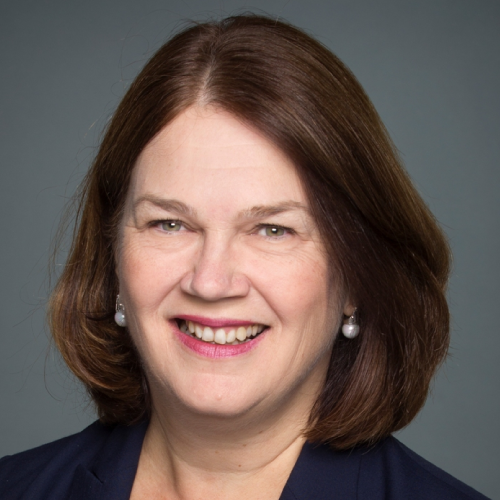 Jane Philpott is a former Liberal Cabinet Minister who was ejected from the Liberal caucus in 2019 for speaking out against Prime Minister Justin Trudeau’s handling of the SNC Lavalin affair. Philpott is running as in independent candidate in Markham-Stouffville. The second issue on Philpott’s candidate website is Democratic Reform. She had not spoken up for proportional representation in past, however, as a Cabinet Minister, she would have been bound by cabinet solidarity. On her candidate website she clearly advocates proportional representation (which can include a ranked ballot within a proportional system). An excerpt: Before the 2015 federal election, I had a sense of the need for democratic reform in Canada. But it took four years in Ottawa for me to realize it is an urgent priority. After four years as a Member of Parliament (MP) including more than three as a cabinet minister, I’m sad to say that Parliament Hill is the most dysfunctional place I have ever worked. This is not to say that government is not a force for good. I know that it is. This is not to say the current government and those before it have not advanced our country in countless positive ways. They have. Hundreds of kind, smart, thoughtful people are elected every few years to become MPs. They go to Ottawa and work long hours on the most important challenges facing our nation and our world. They are surrounded by thousands of public servants who literally run the country and do so with intelligence, compassion and dedication. But the democratic systems of this country could be so much better – and Canadians would be the beneficiaries. I’m not an expert in democratic reform. But let me highlight three broad areas where I think we could improve: elections; the daily function of the House of Commons; and the approach to party power. Let’s start with elections. The basis for democratic elections is supposed to be representation by population. But we continue to accept a system in federal (and provincial) elections called first-past-the-post under which the makeup of the legislatures does not reflect the electoral wishes of the people. A political party can receive votes from less than half of Canadian voters and still gain a majority of seats in the House of Commons. This is fundamentally unfair and it means that many voices go unrepresented and therefore unheard. Many people have thought and written about this for decades. I’m not going to describe all the challenges and potential solutions for electoral reform. I simply want to be added to the list of those who are convinced that the voting system must change as soon as possible. We should adapt ballots for federal elections such that voters can rank the options by order of preference. This should be accompanied by the complex but essential transition to a system of proportional representation. This would mean, for example, that if a party receives votes from 10% of Canadians, then they should have 10% of the seats in the House of Commons. For now, I won’t detail the steps that will get us from here to there most efficiently and effectively. But I’m ready to use any platform possible to push for this change. Every Canadian needs to know that their voice will make a difference. We need to inspire more Canadians to get out on election day and exercise their right to vote.
Jane Philpott is a former Liberal Cabinet Minister who was ejected from the Liberal caucus in 2019 for speaking out against Prime Minister Justin Trudeau’s handling of the SNC Lavalin affair. Philpott is running as in independent candidate in Markham-Stouffville. The second issue on Philpott’s candidate website is Democratic Reform. She had not spoken up for proportional representation in past, however, as a Cabinet Minister, she would have been bound by cabinet solidarity. On her candidate website she clearly advocates proportional representation (which can include a ranked ballot within a proportional system). An excerpt: Before the 2015 federal election, I had a sense of the need for democratic reform in Canada. But it took four years in Ottawa for me to realize it is an urgent priority. After four years as a Member of Parliament (MP) including more than three as a cabinet minister, I’m sad to say that Parliament Hill is the most dysfunctional place I have ever worked. This is not to say that government is not a force for good. I know that it is. This is not to say the current government and those before it have not advanced our country in countless positive ways. They have. Hundreds of kind, smart, thoughtful people are elected every few years to become MPs. They go to Ottawa and work long hours on the most important challenges facing our nation and our world. They are surrounded by thousands of public servants who literally run the country and do so with intelligence, compassion and dedication. But the democratic systems of this country could be so much better – and Canadians would be the beneficiaries. I’m not an expert in democratic reform. But let me highlight three broad areas where I think we could improve: elections; the daily function of the House of Commons; and the approach to party power. Let’s start with elections. The basis for democratic elections is supposed to be representation by population. But we continue to accept a system in federal (and provincial) elections called first-past-the-post under which the makeup of the legislatures does not reflect the electoral wishes of the people. A political party can receive votes from less than half of Canadian voters and still gain a majority of seats in the House of Commons. This is fundamentally unfair and it means that many voices go unrepresented and therefore unheard. Many people have thought and written about this for decades. I’m not going to describe all the challenges and potential solutions for electoral reform. I simply want to be added to the list of those who are convinced that the voting system must change as soon as possible. We should adapt ballots for federal elections such that voters can rank the options by order of preference. This should be accompanied by the complex but essential transition to a system of proportional representation. This would mean, for example, that if a party receives votes from 10% of Canadians, then they should have 10% of the seats in the House of Commons. For now, I won’t detail the steps that will get us from here to there most efficiently and effectively. But I’m ready to use any platform possible to push for this change. Every Canadian needs to know that their voice will make a difference. We need to inspire more Canadians to get out on election day and exercise their right to vote.
Our Target Ridings!
In this election, in addition to promoting proportional representation across the country, Fair Vote Canada is focusing on a number of ridings where our efforts can make the most difference to electing an MP who champions proportional representation, or helping such an MP keep his/her seat. Click on a riding below to learn more and find out how you can help! In these ridings we may be doing one or all of the following:
- Online advertising – encouraging voters to choose parties who support proportional representation. One advertisement talks about Justin Trudeau’s broken promise. Another talks about how long term action on climate change needs PR. Both encourage voters to vote for candidates committed to PR. The more funds we raise, the more people will see our ads! Donate here.
- Door hangers – in some target ridings we aim to deliver 5000 or more door hangers, encouraging voters to choose candidates who support PR. This will require a lot of volunteer power! If you live near one of the ridings below, check the page, and if we’re doing door hangers, please sign up on that page to volunteer!
- Get Out the Vote – we will be joining a non-partisan phone bank calling only to remind people in some of our target ridings to vote (not for specific candidates). You can help make sure more people get to the polls! Sign up here to help GOTV (link coming soon!)
Show politicians you care about making our voting system fair. Sign the Declaration of Voters’ Rights and join our supporter list!
Organizations that Support Proportional Representation
Authorized by Fair Vote Canada, fairvote.ca, (778) 588-9563.
